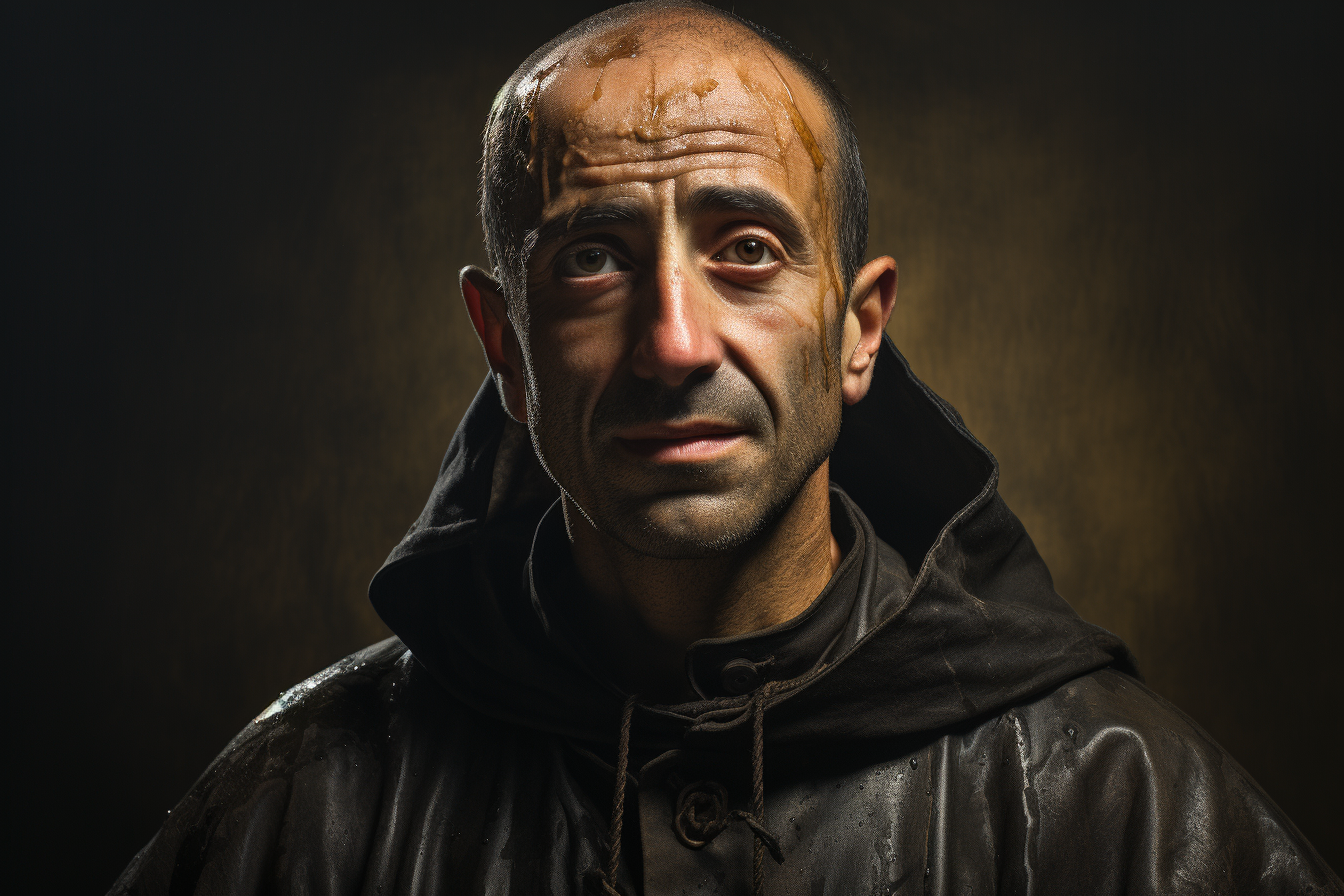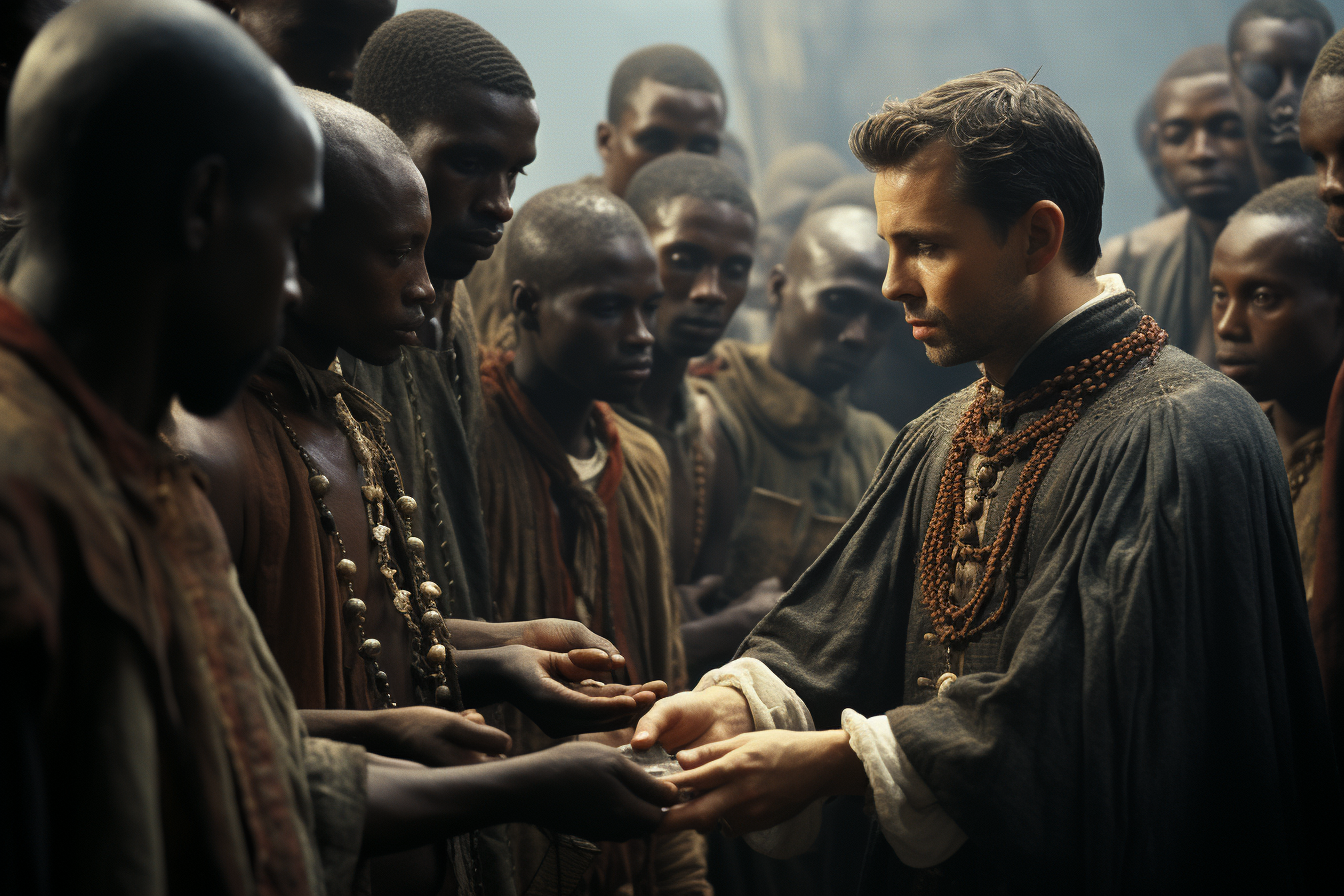
St. Peter Claver
St. Peter Claver
Saint Peter Claver: A Life of Compassion and Devotion
When they lived:
St. Peter Claver, a man of great compassion and devotion, lived during the late 16th and early 17th centuries. He was born on June 26, 1580, in Verdu, Catalonia, Spain, and spent the majority of his life in the vibrant port city of Cartagena, Colombia.
Where they lived:
Cartagena, a bustling Caribbean seaport, was a melting pot of cultures during St. Peter Claver’s time. The city’s vibrant atmosphere and diverse population inspired him to dedicate his life to serving those in need, especially the marginalized and oppressed.
Notable world events during the time of their life:
- The Age of Exploration (1492 – late 17th century): This era marked a period of significant global exploration and discovery. In 1492, Christopher Columbus reached the Americas, opening up a new world of opportunities and challenges. St. Peter Claver’s hometown of Cartagena became a crucial hub for trade and interaction between Europe and the Americas, exposing him to a diverse range of cultures and peoples.
- The Thirty Years’ War (1618 – 1648): During St. Peter Claver’s life, Europe was embroiled in a devastating conflict known as the Thirty Years’ War. This war, which began in the Holy Roman Empire and spread across Europe, resulted in widespread destruction and loss of life. Despite the distance from the epicenter of the conflict, its impact was felt even in Cartagena, influencing the city’s dynamics and challenges.
- The Scientific Revolution (17th century): The time when St. Peter Claver lived was marked by a flourishing period of scientific discoveries and advancements. Visionaries like Galileo Galilei, Johannes Kepler, and René Descartes were revolutionizing the way humanity understood the natural world. While St. Peter Claver’s life was dedicated to spiritual matters, he undoubtedly lived in a world experiencing remarkable scientific progress.
Their patronage:
St. Peter Claver is recognized as the patron saint of slaves, African missions, and interracial justice. His deep empathy for the African slaves brought to the Americas led him to devote his life to their service, providing them with spiritual comfort, medical care, and advocacy for their rights. His unwavering dedication to those who suffered under the brutal conditions of slavery earned him the title of “Slave of the Slaves.”
Service to the Enslaved
The slaves were brought in by the mine owners from Angola and the Congo. Slavery was also a profitable business then, and a lot of it was being brought in. Claver’s predecessor, Alonso de Sandoval, inspired and mentored Claver, and he had also devoted himself to serving slaves for the forty years that he worked before the arrival of Claver to continue his work. Sandoval deemed St. Peter Claver an apt pupil.
St. Peter Claver would board the ships that brought in the slaves as soon as they docked, and he would treat and minister to the slaves. Even though the conditions in the ships were undesirable, he would get in and attend to the badly treated. Because the ships were often filled to capacity, it was often difficult to move around, but he did not give up.
Even after the slaves left the ships, he would join them to provide medicine and food. He used interpreters and pictures to give basic instructions. St. Peter Claver considered the slaves fellow Christians, and he encouraged others to do the same.
When he was not with the slaves, St. Peter Claver would travel to plantations to give spiritual consolation to the slaves. He would baptize them as well as make follow-ups to ensure that, as Christians, they received their Christian and civil rights. He avoided the hospitality of planters and overseers and preferred to lodge in the slave quarters.
St. Peter Claver’s efforts were not in vain, as the slaves’ situations slowly improved. He became a moral force, the Apostle of Cartagena.
Other Acts of Service
St. Peter Claver did not only preach to the slaves; he also preached in the city square to sailors and traders, as well as baptizing them. He would also return to follow up on those he had baptized.
Even though he preached to the slaves, he also ministered to the souls of the well-to-do members of society, traders, and visitors to Cartagena, even if they were Muslims. He condemned criminals and spiritually prepared them for death. He also frequented the city hospitals.
St. Peter Claver wore a cloak, and he would lend it to anyone who needed it.
Illness and death
In his last years, he was very ill and could not even leave his room. He was not well for four years, and he was neglected and forgotten, physically abused, and starved by an ex-slave who had been hired to take care of him. He, however, never complained about his treatment. He died on September 8, 1654.
Even though some city magistrates considered him a nuisance when he was alive, when he died, they ordered a public funeral at the persistent advocacy of the slaves, and he was buried with pomp and ceremony.
His body is preserved and venerated in the church of the Jesuit residence, now renamed in his honor.
Legacy
He is the patron saint of slaves, seafarers, and the Republic of Columbia.
He was canonized in 1888, and his feast day is on the 9th of September.
The Congress of the Republic of Colombia declared September 9 as Human Rights National Day in his honor.
Many organizations, missions, parishes, religious congregations, schools, and hospitals bear the name of St. Peter Claver.
5 Interesting Facts About St. Peter Claver
- It is estimated that he baptized around 300,000 and heard
confessions of over 5,000 slaves per year. - St. Peter Claver signed his final profession document in Latin.
as Peter Claver, servant of the Ethiopians forever. - It was believed that whoever wore St. Peter Claver’s cloak
earned a lifetime of health and was cured of all diseases. - In his final years, when he was being ill-treated, he accepted
it as a just punishment for his sins. - When he died, many people forced themselves into his room.
stripping away anything that serves as a relic.
Prayer to St. Peter Claver
O God, who made Saint Peter Claver a slave of slaves and strengthened him with wonderful charity and patience as he came to their help, grant, through his intercession, that, seeking the things of Jesus Christ, we may love our neighbor in deeds and in truth. Through our Lord Jesus Christ, your Son, who lives and reigns with you in the unity of the Holy Spirit, one God, forever and ever Amen.



